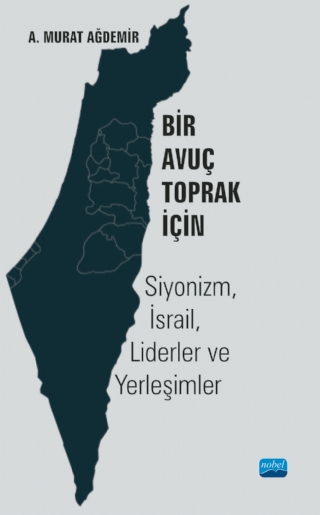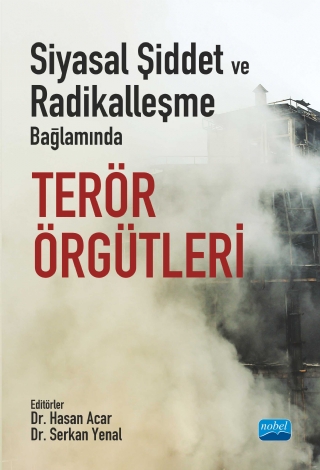Terrorism and Regional Security \ 1-1

It is important to realize that the thoughts of individuals who direct the policies of states have important consequences. While explaining these relations, it is necessary to try to grasp the role played by history, perceptions and value judgments, and to approach the explanations in which impersonal forces such as structure and state dominate from a human perspective.
The Palestinian Question has been handled from very different perspectives by different academics, writers and commentators. These different perspectives can lead people to new questions and research on the subject under discussion. In this book, it is aimed to present a different point of view to the readers by considering the Palestinian Question, in which the land is divided, in terms of the Jewish leaders' perspective, value judgments, beliefs and attitudes.
The Palestinian Question has been handled from very different perspectives by different academics, writers and commentators. These different perspectives can lead people to new questions and research on the subject under discussion. In this book, it is aimed to present a different point of view to the readers by considering the Palestinian Question, in which the land is divided, in terms of the Jewish leaders' perspective, value judgments, beliefs and attitudes.

After the Cold War, International Relations has seen a resurgence of interest in the study of regional powers. Scholars have been paying increasing attention to regional powers as important actors in world politics and studying their foreign policy, but few if any studies have discussed the behaviors of regional power comprehensively and comparatively. The purpose of this book is to gain a better understanding of regional power foreign policy strategies and behaviors by analyzing them comprehensively and comparatively. Unlike previous studies on cooperation and conflict within regions, this study focuses on the reasons for the strategic tendencies and motivations of regional hegemons and great powers and their effects on regional cooperation and conflict. Moreover, departing from Hegemonic Stability Theory, this book also aims to explore similarities and differences between regional and global hegemonic foreign policy strategies.

“The only thing that does not change is change itself.” With this word, Heraclitus was sending a message far ahead of his time. The world and humanity, succumbing to time, confirm this promise by living it every second. The impossibility of returning a second ago creates an environment that is constantly changing and transforming in international politics, as in many other fields. Terrorism, like everything else in international politics, is changing. Especially the September 11 attacks created a catalyst effect in the change and transformation of terrorism in the world and created a new beginning.
While political violence refers to the violent operation of politics through society or the state, radicalism (fundamentalism) refers to the tendency to make fundamental changes in science, religion and politics. This book deals with terrorism, political violence and radicalization. This book, which has been prepared with a long effort and with a staff of academicians who are experts in their fields, is aimed to appeal to students, academics, security forces and the general reader who is interested in the subject.
While political violence refers to the violent operation of politics through society or the state, radicalism (fundamentalism) refers to the tendency to make fundamental changes in science, religion and politics. This book deals with terrorism, political violence and radicalization. This book, which has been prepared with a long effort and with a staff of academicians who are experts in their fields, is aimed to appeal to students, academics, security forces and the general reader who is interested in the subject.